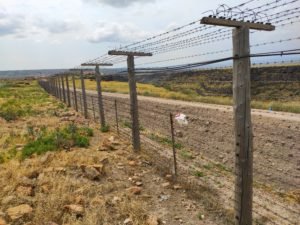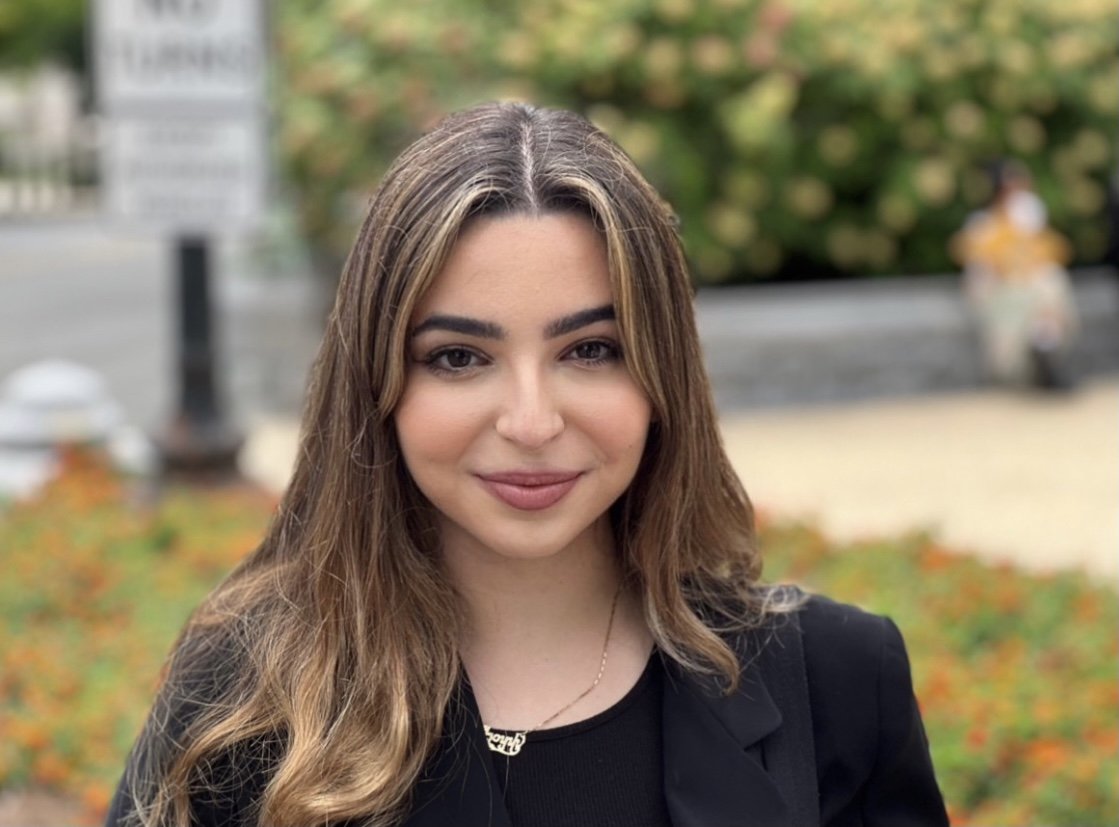“When the blood in your veins returns to the sea, and the earth in your bones returns to the ground, perhaps then you will remember that this land does not belong to you. It is you who belong to the land.” –Unknown
The issue of colonization has been tossed around heavily this week. I say tossed around, because sometimes it feels like people weigh in on issues, because they feel forced to and unknowingly take the side that their values do not align with—whether it be Azerbaijan’s ruthless displacement of the Armenian people from their ancestral homeland, the current Palestinian-Israeli conflict, the Russo-Ukrainian War, or the celebration of Indigenous Peoples’ Day on Monday, October 9. If you keep up with the news or have a social media account, I am almost certain that these topics, with the various opinions surrounding situations of this gravity, are all you’re consuming through your preferred media sources.
In 2021, I wrote a brief piece about my thoughts on Indigenous Peoples’ Day. Something I wrote in that piece still resonates today: “[…] As an Armenian, I can draw historical parallels. I know what it feels like to be called an ‘occupier’ by Recep Tayyip Erdoğan. I know how relentless we are in always choosing to fight assimilation. I know that Native Americans feel the same way. All natives, both Armenian and of the Americas, understand that survival lives in our bones, and our respective genocides bind us together. And nevertheless, we are here. And no matter what, we will flourish.”
I know that the lies we were fed were simply a form of propaganda on behalf of the colonizer—and I can relate. Just this month, I have felt the greatest loss in my lifetime. With Artsakh under total control of the enemy, of the colonizer, I feel that my heart has shattered a thousand times over.
As an Armenian-American, I grew up with the falsified narratives of Native Americans in my history and social studies courses—that Native Americans wanted to give up the lands they had spiritual ties to and happily accepted the colonization that unfolded with little to no resistance. When I started attending college, these false perspectives came to light. The Native peoples of America were not happy to leave their homes. They were not happy to be forced to follow a religion they don’t believe in and to adopt a lifestyle they are not accustomed to.
Now, with social media and other sources we can cite for the hockey-stick level of growth when it comes to the amplification of peoples’ voices, I know that the lies we were fed were simply a form of propaganda on behalf of the colonizer—and I can relate. Just this month, I have felt the greatest loss in my lifetime. With Artsakh under total control of the enemy, of the colonizer, I feel that my heart has shattered a thousand times over.
The European nations’ colonization of the Americas heralded the genesis of a devastating era in history. Indigenous communities, who possess an extensive mosaic of cultures and histories dating back thousands of years, experienced the brunt of this turbulent era. Their territories were taken, mainly by brute force, and treaties, in rare instances when they existed, were seldom respected. Displacement of indigenous populations from their ancestral lands was an abominable injustice that still resonates today.

When it comes to Armenia, a more recent history unfolds under the banner of the late Ottoman Empire and modern-day Turkey. The 1915 Armenian Genocide was a catastrophic event in the annals of human history. It resulted in the systematic extermination of nearly 1.5 million Armenians by means of a ruthless, premeditated campaign of brutality that the international community now universally regards as genocide.
It especially hurts when I think about the Armenian people and Native Americans, because it’s not necessarily about territorial gain or control. We possess a spiritual tie to the land, viewing the natural world as sacred and as a source of guidance and interconnectedness with the rest of the universe. There was a special feeling I felt when I first stepped on Armenian soil. It felt like home, like I was suddenly part of something greater than myself.
Indigenous peoples of the Americas and Armenians have both shown extraordinary cultural resilience. Their fortitude in the face of calamitous losses exemplifies their communities’ immense strength and determination, showcasing an unshakeable dedication to preserving their languages, traditions and identities. Both share a common thread in their disputes over land and territory. Indigenous peoples in the Americas fervently advocate for land restitution and the acknowledgment of their sovereignty, while Armenians have wrestled with conflicts driven by a pan-Turkic goal at the hands of Turkey and Azerbaijan.
Despite the loss of a significant portion of the Armenian population in the 1915 Genocide, I am always left in a state of awe at how the Armenian people have tenaciously held onto their language, traditions and identity. In an uncontrollable situation, we survived. The survival and worldwide revival of the Armenian language and culture is a triumph. I’m not naive. I know we have a lot to cry about. But isn’t it fair, for just a moment, to recognize that we have so much to celebrate as well?
The international recognition of these historical injustices remains a global concern. Calls for reparations are still reverberating on both the indigenous rights platform and within Armenian advocacy, highlighting the persistent wounds of colonization and the need for rectifying historical injustices. While the colonization of Indigenous peoples in the Americas and Turkey’s colonization, followed by genocide, of the Armenian people differ in many ways, they have common themes of relocation, cultural losses and territorial struggles. This Indigenous Peoples’ Day, these histories emphasize the urgency of being cognizant of historical injustices, as well as the critical importance of safeguarding indigenous and historically marginalized communities’ rights and cultures.



There have been reports that Netanyahu got informed of Hamas’s plans in advance but did nothing. I’ll buy that. It’s perfectly conceivable that the old goon let it happen so that he would have an excuse to unleash further terror against Gaza.